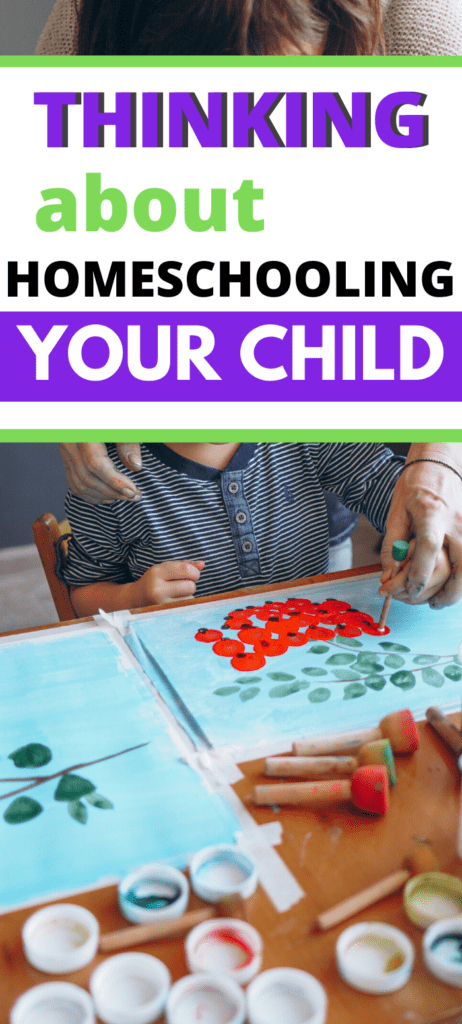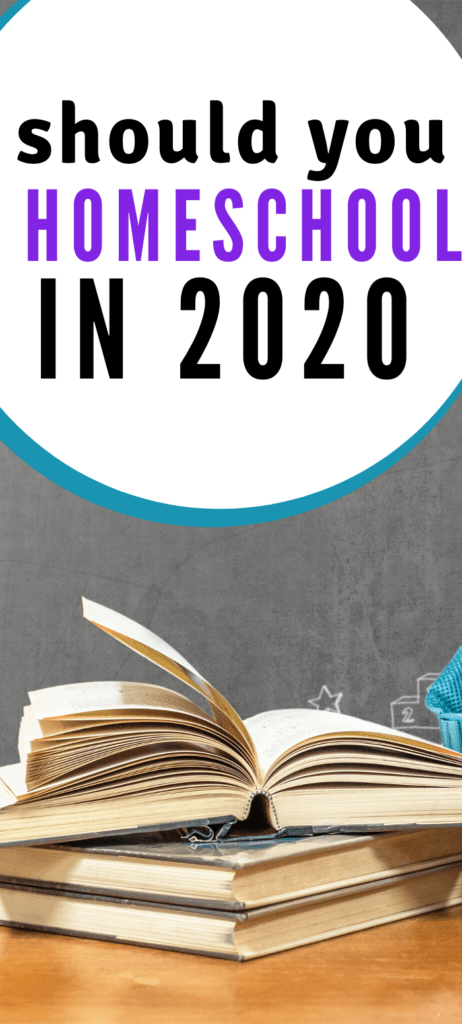With the recent Coronavirus COVID-19 pandemic, many feel they are being forced to now homeschool their child. Schools are closing anywhere from 2 weeks to 6 weeks and parents are left scrambling.
Living in Washington state, I teach and live in one of the initial districts where the governor said we are shutting down for 6 weeks. It left us (teachers) in a scramble and with a lot of unknown questions. As a parent, I knew it was going to be easy for me to transition during this difficult time. But for other parents, what does that mean in terms of possible day care as well as lost instruction for their child?
Knowing that your child might be home for an extended time could mean you want to provide them with instruction. It could be curriculum your child’s teacher gave to you or maybe you would like to supplement their instruction during this non-school time.
Whatever the case, if you wanted to try to homeschool your child, this period of time might be a good trial run. Especially, since this isn’t “summer break” where kids are mostly outdoors or your have to work around your vacation time, and going to grandmas house.
Now, you can take the time understanding your child’s willingness and motivation to possible transition to a homeschool atmosphere.
If you are thinking about homeschooling in 2020, check out these questions in regard to starting to homeschool your own children.

Am I Qualified to Homeschool My Child?
Did you fail Algebra? Maybe you didn’t read until you were well into third grade, or you barely managed to pass English. Does this mean you aren’t qualified to teach your child?
Some parents agonize over whether or not they are qualified to teach their children at home. It’s easy to get caught up in the idea that you have to know everything first, and then pick and choose from this extensive knowledge and teach your child.
This is because no one knows everything…not even me, a certified teacher, like myself!
But I know what many parents are thinking- what about methods and techniques of teaching? If you’re not a teacher, how do you know how to teach and your child will understand it?
These are just some of the issues and dilemmas that parents face when they consider homeschooling. Here are some tips and discussions on how you, as a parent, can know whether or not you feel qualified to homeschool your child, remember—parents you are the first teacher to you child!
Knowledge of Your Child
No one knows a child like his or her parents. Even the most well-meaning teacher does not have the personal interest in your child that you do. That’s just how parenting is – you have unique insights into what makes your child tick (or that stops his clock) that you may not be able to put into words. But that insight will hold you in good stead as a homeschooling parent.
Outside Resources
As noted above, you can’t be expected to know everything or even to learn everything beforehand. You and your child can learn some subjects together, and/or you can seek out resources other than yourself to teach your child about something. For instance, if your child is very interested in chemistry but it was not your strongest subject, look up chemistry lessons online or check out DVDs from the library; and check out books to help you teach the subject.
Another great resource is other homeschoolers. It’s amazing how many experts and knowledgeable people there are in so many fields. Then it is also like your child getting a “classroom” experience by seeking out another homeschool teacher. Think how much more true to life such a learning scenario is than a classroom slide show or textbook.
The Power of Information
We live in an information age. If it’s not at the library, it’s on the internet; and the library is probably on the internet, too! We live in a time when it’s easier than ever to find the information you need to educate your child. Remember, you don’t have to know everything. You just have to know where to find it.
Benefits of Homeschooling
Homeschoolers often choose to educate their children at home due to the benefits inherent in homeschooling. For those considering homeschooling as an option, you might be wondering just what these benefits are. Studies have shown all sorts of benefits to homeschooling; here are some of them.
Family Time
Many families are concerned about the lack of family time in our modern world. Between work, school, and extracurricular activities, many parents and children find it difficult to find time to spend together. Homeschooling requires that the teacher (parent) does spend time with the child or children, and you learn a great deal about each other in the process.
Love of Learning
Homeschooling is often geared toward making learning fun and engaging, setting the stage for a lifelong love of learning. This love of learning is something that may get lost in a public-school setting, where a child may be at a level different than the class’s teachings or may associate learning with boredom.
Readiness
Homeschooling gives the opportunity to teach your child in whatever capacity and at whatever level he or she is. Some children, for instance, may be highly skilled in reading and read at an early age, but find handwriting a challenge. Others may write beautifully but struggle with reading. There are a great many variations across the learning spectrum, and homeschooling allows parents to work with these strengths and weaknesses.
Social readiness is another benefit of homeschooling – that is, being able to socialize your child at his or her own pace in settings he or she finds comfortable.
And finally, homeschoolers need not worry that their child is being exposed to a teaching or issue that they find objectionable, or for which their child is not ready.
Customized Education
Homeschooling gives parents insight into their child’s learning style as well as his or her strengths and weaknesses. This allows the parent to customize a curriculum and find the teaching style that best fits the child.
Real Life Experience
It’s been said that “socialization” occurs when homeschoolers are out experiencing interpersonal reactions with a wide range of people, while public school kids are sitting in desks forbidden to talk to each other! Homeschooled kids get exposed to the post-academic world – the world outside of school – at an early age, which may better prepare them for the future.
Freedom from Bullying
Bullying is a major concern in today’s schools. It was one of the biggest reasons why I wanted to homeschool my own son. Freedom from bullying is a significant benefit of homeschooling. Children learn in a safe environment and can concentrate on their schoolwork rather than being worried about the next encounter with the bully.

Answers to Top Questions about Homeschooling
As parents consider homeschooling their child or children, they often have a lot of questions. Here are some of these top questions (and their answers) asked by those expressing curiosity and concerns about homeschooling.
1. Will my child receive proper socialization if I homeschool?
The answer is yes – if parents put in a little effort. In a traditional school setting, parents send their kids off each day and hear about their new friends. For a homeschooled child, the parents take an active role.
Socialization may take several forms for the homeschooled child – interacting with the community as you attend events and local libraries, museums, YMCA, and so forth; but also getting together with other children on “playdates.” Parents may find that a homeschool co-op is a wonderful source of positive socialization. Homeschooled families go on field trips together and interact regularly.
Another great asset is homeschooled children can play on school sport teams. If you inquire through your boundary district, your homeschool child can join their local boundary school and tryout (if there are tryouts) for the team. This is also a great way to social build for homeschool children that requires little effort and builds connections.
2. What about testing and homeschooling?
Each state has homeschool regulations, your state’s board of education will have guidelines and laws about academic assessment. For example, some states require that homeschooled children be evaluated by a certified teacher; others allow submission of a portfolio to a certified teacher for approval; and still others require that homeschooled kids submit to standardized testing.
As for tests and quizzes during the year – well, that’s up to the parent! You can include “pop quizzes” or tests as part of your curriculum if you choose.
When I taught G.E.D. basic education classes, I did have a student who was homeschooled. She wanted to go to the local community college but they didn’t accept her homeschool high school diploma. She needed to get at least a G.E.D to be able to attend high school- which is what she did. Her G.E.D test schools where above average.
3. Is homeschooling expensive?
The answer to this question varies depending on the curriculum and method you choose; but the short answer is, not necessarily. You can spend a great deal ($500+) if you want to purchase a pre-packaged, full-year curriculum with all the “fixings.” But you can spend a whole lot less than that if you take advantage of community resources (including your local library) and free internet materials.
Homeschooling can get expensive in terms of time – a parent must take time away from a wage-earning job to teach. This was the number one factor in my not being able to homeschool my son- which was a very difficult decision.
4. What about the ACT and SAT?
These tests are college requirements, so it depends on whether or not your homeschooled student is going to go to college, and what college he or she is interested in. Obviously, if the college he or she wants to apply for requires these test scores, then he or she will need to take the tests.
5. Is homeschooling just for religious families?
No, homeschooling is not just for religious families; there are secular approaches to homeschooling as well as religion-based ones. In the past, sources say, more homeschoolers educated their children at home for religious reasons than they do now. School violence and safety are modern motivations to homeschool, as well as more pro-choice movement for those who choose not to vaccinate their children.
Final Thoughts
Do you think you will homeschool your children in the future? Have you already given it a try? Let us know how it is going so far in the comments below!



1 Comment on Is 2020 the Time to Homeschool your Child